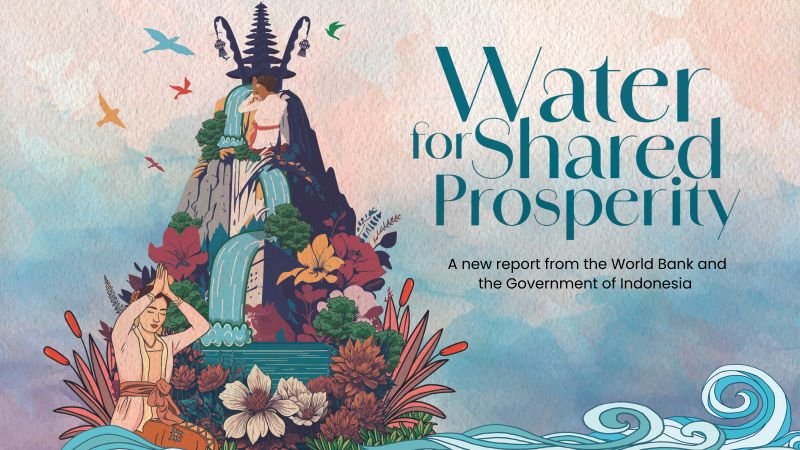Report Overview at the 10th World Water Forum
The global flagship report “Water for Shared Prosperity”, co-published by the World Bank and the Government of Indonesia, was unveiled during the 10th World Water Forum in Bali, Indonesia. The forum, themed “Water for Shared Prosperity”, ran from May 18 to 25, 2024, serving as a collaborative platform for addressing worldwide water issues.
Significance and Key Findings of the Report
The report addresses the crucial need for safe drinking water and sanitation as foundational to both human and economic development. It highlights that in 2022, 2.2 billion people lacked access to safe drinking water and 3.5 billion were without safely managed sanitation. These deficiencies contribute significantly to global health issues, causing approximately 1.4 million deaths annually and accounting for 50% of global malnutrition.
Impact of Water Scarcity and Sanitation Deficits
Over the past two decades, the number of people without access to safe drinking water and basic sanitation increased by 197 million and 211 million, respectively. The report emphasizes that climate change has exacerbated water-related risks, with developing countries particularly vulnerable to climate shocks, experiencing more severe droughts and longer-lasting floods.
Regional Water Resources and Risks
Significant disparities in water resource distribution and risks were noted, with the Democratic Republic of the Congo holding over half of Africa’s total water resources. Meanwhile, regions in the Sahel, Southeastern Africa, and South and Central Asia face severe water stress.
Recommendations for Enhancing Water Security
The report advocates for several strategies to bolster water security, particularly in developing countries. These include protecting aquifers, leveraging nature-based solutions like reforestation, enhancing water storage infrastructure, and improving housing and land use regulations to mitigate flood risks. Furthermore, it calls for reforms in water tariffs and subsidies to ensure fair resource allocation, alongside improvements in service provider operations to reduce water losses and lower costs.
Conclusion
“Water for Shared Prosperity” sheds light on the pressing global water challenges and provides actionable recommendations aimed at fostering long-term sustainability and resilience in water management worldwide.


